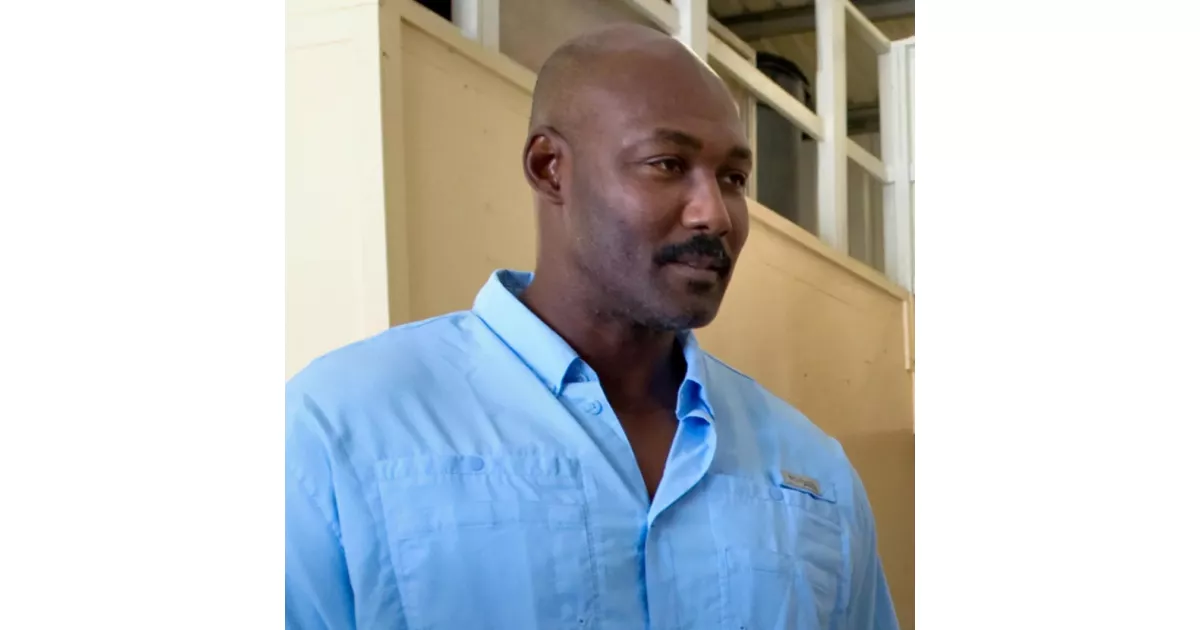Karl Malone, nicknamed "the Mailman," is a retired American professional basketball player widely regarded as one of the greatest power forwards in NBA history. He spent 18 seasons with the Utah Jazz, forming a dominant partnership with John Stockton. Malone was a two-time NBA MVP, a 14-time All-Star, and a 14-time All-NBA Team member, including 11 consecutive First Team selections. He ranks third in all-time NBA scoring with 36,928 points and holds records for most free throws made and attempted, and most regular season games started.
July 24, 1963: Karl Malone's Birth
On July 24, 1963, Karl Anthony Malone was born. He would later become a professional basketball player in the NBA.
1979: First Louisiana Class C Title
In 1979, Karl Malone led his basketball team at Summerfield High School to the first of three consecutive Louisiana Class C titles.
1981: Third Consecutive Louisiana Class C Title
In 1981, Karl Malone led his basketball team at Summerfield High School to their third consecutive Louisiana Class C title in his senior season.
1983: Louisiana Tech Debut
In 1983, Karl Malone began playing for the Louisiana Tech Bulldogs basketball team in his second year of enrollment.
1984: NCAA Tournament Appearance
In 1984, Karl Malone helped the Louisiana Tech Bulldogs to their first NCAA tournament appearance.
1984: Cut from US Olympic Basketball Team
In 1984, Karl Malone was cut from the United States men's national basketball team.
1984: Averaged 18.7 Points
In his second season with Louisiana Tech, which was 1983-84, Malone averaged 18.7 points and 9.3 rebounds per game.
1985: Malone and Stockton Teamed Up
In 1985, Karl Malone and John Stockton teamed up on the Jazz and formed one of the most productive guard-forward combinations in NBA history. Their collaboration lasted until 2003.
1985: First NBA Season
In 1985, Karl Malone began his first 18 seasons in the NBA with the Utah Jazz.
1985: First Place in Southland Conference
In 1985, Karl Malone helped the Louisiana Tech Bulldogs secure first place in the Southland Conference.
April 3, 1987: End of second season
After his second season, Karl Malone became the Jazz's leader in average scoring and rebounding. Between February 1 and April 3, 1987, he was the leading scorer of the game in 24 of 29 games.
1987: Foundation of Offense
By the 1987-88 season, Karl Malone had become the foundation of the Utah Jazz's offense.
December 1988: Jerry Sloan Became Head Coach
In December 1988, Jerry Sloan took over as head coach of the Utah Jazz, succeeding Frank Layden.
1988: First All-Star Game Appearance and All-NBA Team Selection
In 1988, Karl Malone made his first All-Star Game appearance, scoring 27.1 points per game, and was selected for his first All-NBA team.
1988: Kay Kinsey Wins Miss Idaho USA
In 1988, Kay Kinsey won the Miss Idaho USA pageant.
December 5, 1989: Win against Cleveland Cavaliers
On December 5, 1989, Karl Malone scored 21 points and grabbed 19 rebounds in a 94-80 win over the Cleveland Cavaliers.
1989: Second in scoring
As he had done in 1989-90, Malone finished the 1991–92 season second in the league in scoring, averaging 28.0 points per game.
1989: All-Star MVP Award
In 1989, Karl Malone was named NBA All-Star MVP after scoring 28 points, grabbing 9 rebounds, and making 3 assists.
January 27, 1990: Career-High 61 Points
On January 27, 1990, Karl Malone scored a career-high 61 points in a 144-96 victory against the Milwaukee Bucks, making 21 of 26 field goals and 19 of 23 free throws.
March 29, 1990: 49 Points against Golden State Warriors
On March 29, 1990, Karl Malone scored 49 points against the Golden State Warriors.
December 24, 1990: Marriage to Kay Kinsey
On December 24, 1990, Karl Malone married Kay Kinsey, winner of the 1988 Miss Idaho USA pageant.
1990: Start of season
The 1990-91 season started with a 7-8 record.
February 1991: Jazz's Record
After starting the 1990-91 season 7-8, the Jazz went 21-9 in January and February 1991.
March 4, 1991: End of Scoring Streak
From January 19 to March 4, 1991, Karl Malone led the Jazz in scoring for 19 straight games.
November 8, 1991: Birth of Daughter Kadee
On November 8, 1991, Karl Malone's daughter Kadee was born.
December 14, 1991: Elbowing Isiah Thomas
On December 14, 1991, Karl Malone elbowed Isiah Thomas in the forehead during a game against the Detroit Pistons, resulting in a suspension and a fine.
1991: Bulls Championship
In 1991, the Chicago Bulls achieved their first championship in a run that would total six by 1998.
1992: Olympic Opposition
Following the 1992 Summer Olympics, Karl Malone expressed opposition to Magic Johnson's comeback to the NBA after testing positive for HIV.
1992: Summer Olympics Gold Medal
In 1992, Karl Malone competed with the United States national team in the Summer Olympic Games and won a gold medal.
1992: Joined US Olympic Basketball Team
In 1992, Karl Malone joined the United States men's national basketball team, marking the inclusion of NBA players in national teams.
1992: Honorary Member of Oregon National Guard
In 1992, The Oregon National Guard made Karl Malone an honorary member after the U.S. national team beat the Venezuelan team in the gold-medal game of the Olympic qualifier tournament.
1992: Western Conference Finals Appearance
In 1992, the Utah Jazz made it to the Western Conference Finals for the first time in franchise history.
1992: Hall of Fame Induction for Olympic Team
In 2010, Karl Malone was inducted into the Naismith Memorial Basketball Hall of Fame as a member of the 1992 United States men's Olympic basketball team.
1992: Jazz Season Record
In the 1992-93 season, the Utah Jazz had a season record of 47-35. Malone led the Jazz to multiple 50-win seasons with the exception of this season.
February 4, 1993: Surpassed 16,000 Career Points
On February 4, 1993, Karl Malone surpassed 16,000 career points in a game against the Lakers.
April 7, 1993: Birth of Daughter Kylee
On April 7, 1993, Karl Malone's daughter Kylee was born.
1993: Stellar Numbers
In 1993–94, Malone started all 82 games of 1993–94 and helped the Jazz make the Western Conference Finals for the second time in franchise history.
March 29, 1994: Career-High 23 Rebounds
On March 29, 1994, Karl Malone recorded a career-high 23 rebounds in a game against the Golden State Warriors, which the Jazz lost 116-113.
1994: Disclosure of Father's Suicide
In 1994, Karl Malone disclosed that his father, Shedrick Hay, committed suicide when Karl was 14 years old.
1994: Starring Role in the film Rockwell
In 1994, Karl Malone starred in the film "Rockwell" as a member of Porter Rockwell's team.
January 20, 1995: Reached 20,000 Career Points
On January 20, 1995, Karl Malone became the 19th NBA player to reach 20,000 career points.
May 8, 1995: Birth of Son Karl Jr. (K.J.)
On May 8, 1995, Karl Malone's son Karl Jr. "K.J." was born.
1995: Stellar Numbers
In 1994-95, Malone averaged 26.7 points and 10.6 rebounds.
January 13, 1996: Contract Renewal with the Jazz
On January 13, 1996, Karl Malone renewed his contract with the Utah Jazz.
1996: 1996 Summer Olympics Gold Medal
In 1996, Karl Malone played in the Summer Olympics and won a gold medal with the US team.
1996: NBA 50th Anniversary Team Selection and Second Olympic Gold Medal
In 1996, Karl Malone was named one of the 50 greatest players of all time as part of the NBA's 50th Anniversary Team. In the same year, he won another gold medal at the Summer Olympic Games.
1996: 1996 Summer Olympics and NBA Finals Appearance
In 1996, Karl Malone won a gold medal at the Summer Olympics and subsequently led the Jazz to two consecutive NBA Finals appearances.
1997: 1996–97 Season MVP Award
During the 1996–97 NBA season, Karl Malone won his first NBA Most Valuable Player award and led the Jazz to a 64–18 record. Malone reached the NBA Finals in 1997, where they played the Chicago Bulls.
1997: NBA Finals Appearance with the Jazz
In 1997, Karl Malone and the Utah Jazz reached the NBA Finals.
July 1998: WCW Professional Wrestling Match
In July 1998, Karl Malone participated in a professional wrestling match at WCW's Bash at the Beach event, teaming with Diamond Dallas Page against Dennis Rodman and Hulk Hogan. Malone and DDP lost the match, but the event was a financial success.
July 1998: Fishing Trip to Alaska
In July 1998, Karl Malone went on a four-day fishing trip to Alaska with his Jazz teammates Chris Morris and Bryon Russell, some family members, corporate leadership of Q-Lube, and winners of a Q-Lube contest.
November 12, 1998: Trade Demand and Subsequent Backtrack
On November 12, 1998, during the NBA lockout, Karl Malone declared he would demand a trade from the Jazz, but he later retracted the demand.
1998: Acceptance of Paternity of Ford Twins
By the fall of 1998, Karl Malone accepted his paternity of the Ford twins, and Kay Malone said publicly that the twins were members of the Malone family.
1998: 1998 NBA Finals Game 6
During Game 6 of the 1998 NBA Finals held at the Delta Center in Salt Lake City, Karl Malone scored 31 points and made 11 rebounds but lost a pass in the post. The Jazz lost the game to the Chicago Bulls, costing them the series.
1998: Second NBA Finals Appearance with the Jazz
In 1998, Karl Malone and the Utah Jazz made their second appearance at the NBA Finals.
1998: Appearance in Brother's Keeper
In 1998, Karl Malone appeared in an episode of "Brother's Keeper".
1998: Birth of Daughter Karlee
In 1998, Karl Malone's daughter Karlee was born.
1998: Paternity Lawsuits Reported
In 1998, The Globe reported that Karl Malone had been a defendant in paternity lawsuits, alleging that he was the father of three children born in the late 1980s.
1999: Second MVP Award and Playoff Loss
In 1999, Karl Malone won his second NBA MVP award, but the Jazz lost in the second round of the playoffs to the Trail Blazers.
2000: MVP Flakes Cereal
In 2000, a cereal dedicated to Karl Malone, named MVP Flakes, was produced.
2002: Political Donation in 2002
In 2002, Karl Malone donated $1,000 to the campaign of incumbent U.S. Representative Jim Matheson, a Democrat representing Utah's 2nd congressional district.
2002: Passing Wilt Chamberlain on All-Time Scoring List
In the 2002-2003 season, Karl Malone passed Wilt Chamberlain for second on the all-time NBA scoring list with 36,374 points.
2003: Free Agency
In 2003, Karl Malone became a free agent after Stockton retired.
2004: Free Agency and Potential Return to Lakers
After the 2004 NBA season with the Lakers, Karl Malone became a free agent. Personal problems with Kobe Bryant discouraged Malone from returning for another season with the team.
2004: Political Donations in 2004
In 2004, Karl Malone donated $4,000 to the reelection campaign of President George W. Bush and $2,000 to the U.S. Senate campaign of Lisa Murkowski, a Republican from Alaska.
2004: Cameo Appearance in Soul Plane
In 2004, Karl Malone made a cameo appearance as himself in the comedy film "Soul Plane".
2004: Final Season with the Los Angeles Lakers
In 2004, Karl Malone played his final season with the Los Angeles Lakers, reaching his third NBA Finals.
2004: NBA Finals Loss with the Lakers
In 2004, Karl Malone's quest to win an NBA championship failed as the Lakers were defeated in five games by the Detroit Pistons in the NBA Finals. He also suffered a sprained right knee during the finals.
February 13, 2005: Retirement Announcement
On February 13, 2005, Karl Malone officially announced his retirement from the NBA after 19 seasons.
February 2005: Speculation of Signing with the Spurs
In early February 2005, prior to the 2005 NBA All-Star Game, Karl Malone's agent speculated that he would sign with the San Antonio Spurs.
March 23, 2006: Jersey Retirement and Statue Unveiling
On March 23, 2006, the Utah Jazz retired Karl Malone's jersey number 32. A bronze statue was unveiled outside the EnergySolutions Arena next to teammate John Stockton, and a portion of 100 South in Salt Lake City was renamed in his honor.
May 31, 2007: Director and Assistant Coach at Louisiana Tech University
On May 31, 2007, Karl Malone became director of basketball promotion and assistant strength and conditioning coach at his alma mater, Louisiana Tech University.
2007: Joined Louisiana Tech Bulldogs Staff
In 2007, after retiring from the NBA, Karl Malone joined the staff of the Louisiana Tech Bulldogs.
2008: First Meeting with Demetress Bell
In 2008, The Buffalo News reported that Demetress Bell's first meeting with Karl Malone came shortly after Bell graduated from high school.
March 2009: Appearance on Fox News' Hannity
In March 2009, Karl Malone appeared on the "Great American Panel" segment of the Fox News talk show Hannity. During his appearance, he advocated support for farmers in Louisiana who were about to lose their jobs due to the closing of Pilgrim's Pride plants.
2010: Sold Dealership Shares
In 2010, Karl Malone sold his share in a Toyota dealership in Albuquerque and his share in a Honda dealership in Sandy, Utah.
2010: Induction into Naismith Memorial Basketball Hall of Fame
In 2010, Karl Malone was inducted into the Naismith Memorial Basketball Hall of Fame along with the rest of the original Dream Team.
May 29, 2013: Returns to Utah Jazz as Big Man Coach
On May 29, 2013, Karl Malone returned to the Utah Jazz to work as a big man coach.
2014: Repairing Relationship with Bell
In 2014, Karl Malone and Demetress Bell repaired their relationship and were in regular contact by 2018.
2018: Regular Contact with Bell
By 2018, Karl Malone and Demetress Bell had repaired their relationship and were in regular contact.
2018: Reflections on Fatherhood
In 2018, Karl Malone reflected on his relationship with his older children, expressing regret for not handling it well and acknowledging the irreversible passage of time.
2018: K.J. Invited to NFL Combine
In 2018, Karl Malone's son, K.J., who played football at LSU, was invited to the NFL Combine.
2019: Bought Toyota Dealership in Ruston, Louisiana
In 2019, Karl Malone bought a Toyota dealership in Ruston, Louisiana, and named it Karl Malone Toyota of Ruston.
October 2021: NBA 75th Anniversary Team Selection
In October 2021, Karl Malone was again honored as one of the league's greatest players of all time by being named to the NBA 75th Anniversary Team.
2022: Ranked Among NBA's Greatest Players
In 2022, The Athletic ranked Karl Malone as the 16th greatest player in NBA history to commemorate the NBA's 75th Anniversary.
Mentioned in this timeline

Basketball is a team sport played on a rectangular court...

Michael Jordan widely considered one of basketball's greatest players significantly...
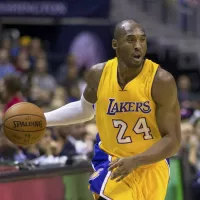
Kobe Bryant a legendary shooting guard dedicated his -year NBA...

George W Bush the rd U S President - is...
Venezuela officially the Bolivarian Republic of Venezuela is located on...
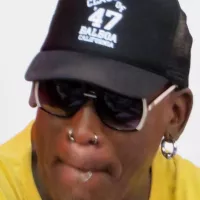
Dennis Rodman is an American former professional basketball player known...
Trending
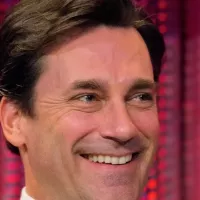
23 minutes ago Jon Hamm Discovers Viral Dancing Meme; Reacts to Meme-Worthy Status at 54.

23 minutes ago Georgia: Missing child found safe after Amber Alert issued in Barrow County.

1 hour ago Selena Gomez Defends Benny Blanco Amid Dirty Feet Frenzy and Divorce Comments.

1 hour ago Blackpink Announces New Album 'DEADLINE' and Teases New Era.
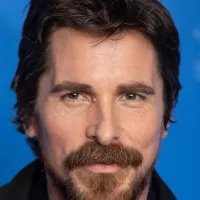
1 hour ago Christian Bale transforms for 'The Bride,' calls character 'old-fashioned,' praises Gyllenhaal's script.
1 hour ago Jaden McDaniels' rise with Timberwolves foreseen by Crawford; joins Leonard's exclusive group.
Popular

Jesse Jackson is an American civil rights activist politician and...

Susan Rice is an American diplomat and public official prominent...

Barack Obama the th U S President - was the...

XXXTentacion born Jahseh Dwayne Ricardo Onfroy was a controversial yet...

Michael Joseph Jackson the King of Pop was a highly...

Kashyap Pramod Patel is an American lawyer who became the...
